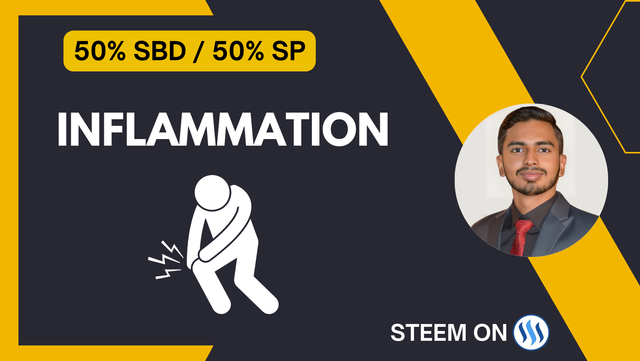Inflammation: Causes and Treatments

What is Inflammation?
In simple terms, inflammation is our body’s natural defence mechanism just like an alarm system. When our body has an injury or an infection, it responds with a natural process called inflammation. For instance, you may see pain, redness, swelling, and heat in that area if you get hurt or have an infection. These are the classic signs of inflammation.
When it does hit you, your immune system sends chemical signals to the affected area and calls in white blood cells to fix it. These are the body’s defenders, white blood cells help to fight off any germs, bacteria or harmful substances that may have caused the problem.
Now, let’s talk briefly about the two main types of inflammation: acute and chronic.
Acute Inflammation: This type comes on suddenly and may clear up within a few days or weeks. Let’s say that when you injure your knee, or get a sore throat, your body reacts fast to heal the injured area.
Chronic Inflammation: This lasts for a longer period, even after the injury or infection is gone. It can be bad because it harms our cells and tissues over time and can lead to worse things like arthritis.
And there’s one more important thing I want to clarify before I jump to the next question, inflammation isn’t only caused by injuries or infections. Things like allergies, stress, and even an unhealthy diet can also trigger it.
What Causes Inflammation?
As I told you before, it’s part of our body’s defence system, but can be triggered by a number of factors. Here’s what commonly causes inflammation:
Injury: This is probably the most familiar cause. If you get hurt, say you scrape your elbow or injure your knee when you fall, the injured area becomes inflamed.
Infections: Major causes of inflammation include bacterial, viral or fungal infections. For example, when it’s the flu or a sore throat, the cause is usually a virus. When the infection hits, your immune system responds and you get a fever, swelling, and fatigue as it tries to fight it.
Allergies: Another big trigger is allergies. Allergies occur when your immune system overreacts to something that doesn’t normally cause a problem, such as pollen or dust. Symptoms of inflammation can include sneezing, swelling, or rashes—all of which are caused by this.
Smoking: Many people smoke and there are many ways that chronic inflammation comes about due to the harmful chemicals they introduce into the body which damage lung tissues as well as other parts of the body.
Stress: Inflammation is increasingly recognized as being largely caused by stress. Our body releases certain chemicals under constant stress, and those chemicals can increase inflammation.
What Can You Do to Treat Inflammation?
Let’s now talk about how inflammation can be treated. In most cases, you only have to treat inflammation if the inflammation becomes chronic or if it is causing too much damage to your body. Once your body’s healing process is complete, acute inflammation usually goes away on its own. But chronic inflammation requires treatment, otherwise it can cause long term health problems.
In most cases, if you have pain or swelling, the first thing to do is take painkillers or anti-inflammatory drugs such as ibuprofen or aspirin. They give quick relief and reduce swelling. If your case is more serious, you may be prescribed stronger medications, such as steroids.
Diet also plays a big role. Eating junk food, oily foods and sweets can also worsen inflammation, so eating healthy foods like vegetables, fruits, fish and nuts is important. Turmeric and ginger are also home remedies that have anti inflammatory properties.
When you’re swollen, you need rest. Don’t overdo it, and put some ice on the area to help reduce swelling and give you some relief.



Hello @waqarahmadshah
Thanks for the invitation.
I must say that particularly this topic of Chronic Inflammation is something that interests me a lot and to which I am devoting a lot of time to study lately. Because the most up-to-date medical trends are focused on this process as the cause of most of today's metabolic diseases, such as diabetes and blood pressure.
Particularly the latter interests me a lot, since my mother is hypertensive, and I am trying to ensure that at some point she does not require pills to control her blood pressure. And this has to do with the elimination of this chronic inflammation, closely linked to changes in habits. Anyway, thanks for the invitation, and for sharing good information.
Thank you for sharing your insights! Your mother is lucky to have someone as caring and proactive as you by her side.
Inflammation shows a sign of body repair.
Although acute Inflammation may not be harmful, eating junk food can worsen the case of inflammation.
It is advisable to quit all unhealthy eating habits and lifestyle.
It is also important to be mindful of underlying health conditions that may be contributing to chronic inflammation and to work with healthcare professionals to address and manage these issues effectively. By understanding inflammation and taking proactive steps to mitigate its impact, individuals can improve their overall well-being and reduce their risk of developing inflammatory-related diseases
Congratulations on bringing a quality content. You have earned a positive vote from team 2, and it is delivered by @starrchris.
Many Blessings...🙏🏻